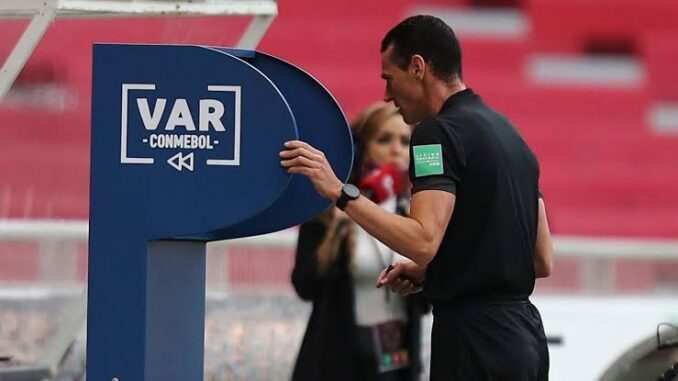
Wolverhampton Wanderers have failed to receive any support from other teams in the Premier League in their bid to get VAR scrapped, with clubs voting 19-1 to keep the video assistant.
Wolves lodged a motion for consideration at the end-of-season AGM on Thursday stating that “the price we are paying for a small increase in accuracy is at odds with the spirit of our game, and as a result we should remove it from the 2024/25 season onwards.”
Fourteen clubs of the 20 top-flight clubs needed to back Wolves’ motion for it to pass and for VAR to be removed from English football with immediate effect, but instead it was effectively reduced to an umbrella discussion of areas for improvement.
Ahead of the meeting, clubs who regularly play in European competition, which feature VAR, had not been expected to entertain removing it from the Premier League, while clubs from lower down in the table had indicated that ditching the video referee at this stage would be counter-productive.
While other clubs shared Wolves’ concern about ongoing problems with its implementation, many believe VAR provides a safety net against poor on-field decisions and steps should be taken to improve the processes.
Earlier this season Tony Scholes, the league’s chief football officer, said that there were “too many checks” that are “taking too long,” but that the Premier League was fully committed to VAR.
With 38 VAR errors in 2022-23, the Premier League will also point to a 21% drop in mistakes year-on-year to show things are getting better, despite some high profile incidents. Yet the problem is there are many more situations outside of those identified by the KMI Panel which managers and fans will feel are wrong.
Clubs did, however, approve referees announcing the explanation for a VAR overturn to the crowd. This will largely only apply to a referee visiting the pitchside monitor to overturn a subjective decision, which happened 66 times last season. It will not apply to the occasions when a VAR checks and opts not to send the referee to the screen, so for instance three penalty incidents which incensed Nottingham Forest in their 2-0 loss at Everton in April.
It’s hoped that this will remove some of the inertia inside a stadium about why a decision has been changed, but it is unlikely to go far enough to placate fans who feel VAR has taken far more away from the game than it has added.
The AGM comes less than two months after the 20 Premier League clubs voted to introduce semiautomated offside technology (SAOT) next season, which involves a contract with a new offside technology supplier, Second Spectrum. That will be delayed until after one of the autumn international breaks as further testing is required to ensure the system is robust.
It is hoped that SAOT will, on average, make offside decisions 31 seconds quicker by removing the human aspect of the VAR drawing lines onto the players. But this technology isn’t going to make offside calls instant, there is likely to be an increased number of marginal decisions as, unlikely the current Hawk-Eye software, SAOT doesn’t have a built-in tolerance level, and some situations — where several players are involved in close proximity — the VAR may have to resort to using the old Hawk-Eye system.
Second Spectrum has been the official tracking provider of the Premier League since 2020, and will use artificial intelligence (AI)-powered skeletal tracking technology — which provides the foundation for SAOT. However, as in Serie A and the UEFA Champions League there won’t be a chip within the ball to automatically detect the kick-point. So far this has only been used at the FIFA World Cup, but it will be used by UEFA for the first time at Euro 2024.



Be the first to comment